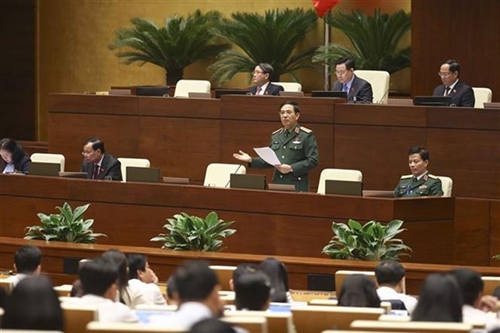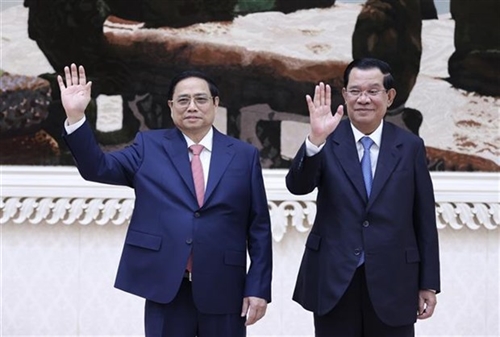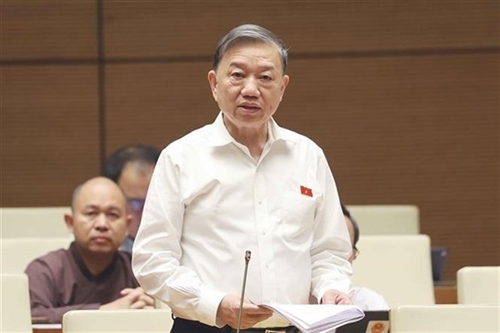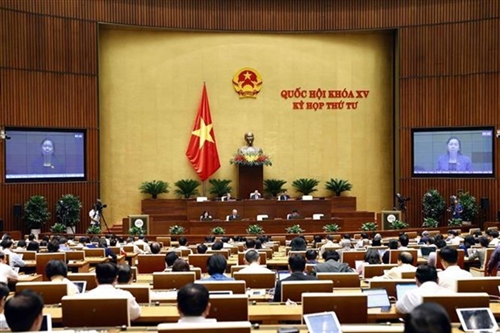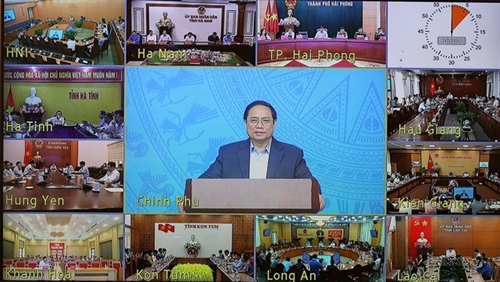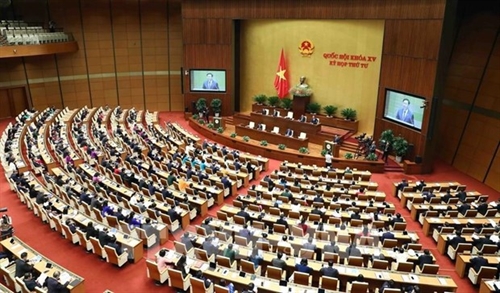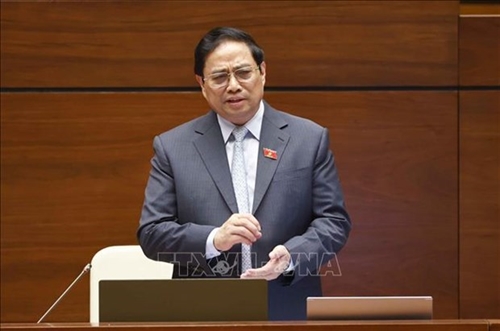The National Assembly adopted the Resolution on the socio-economic development plan for 2023 with 93.37 percent of votes at its ongoing fourth session in Hanoi on November 10.
The resolution clearly states the goal of prioritizing macro-economic stability, controlling inflation, promoting growth, ensuring major balances of the economy, and improving the internal capacity, self-reliance, resilience and adaptability.
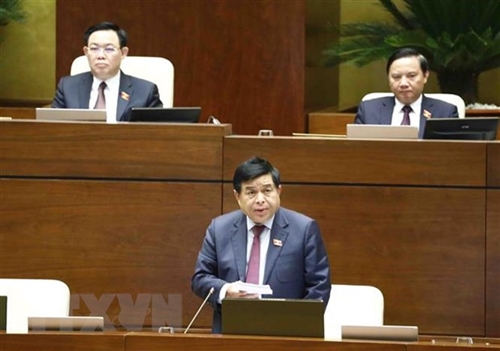 |
| Minister of Planning and Investment Nguyen Chi Dung discusses the contents of the draft Law on Co-operatives (amended)__Photo: VNA |
The Government set 15 key socio-economic targets for next year, including a GDP growth of some 6.5 percent, a 4.5 percent hike in consumer price index, labor productivity growth of 5-6 percent, unemployment rate in urban areas below 4 percent, and a 1-1.5 percent reduction in the multidimensional poverty rate.
Earlier in the morning, NA deputies discussed the draft amendments of the Law on Cooperatives. They agreed with the need to amend the law to supplement and complete regulations on the collective economy, protect legitimate interests, and improve the income and quality of life of members of cooperatives.
The revised law is expected to promote the development of the collective economy, making it become a solid foundation of the national economy.
The draft on cooperatives comprises 12 chapters and 111 articles. Compared to the 2012 version, three articles are removed, 65 are amended, and 49 others are supplemented.
Deputy Khang Thi Mao from Yen Bai Province said that over the past time, ministries, agencies, localities, organizations and individuals had actively implemented the 2012 Law on Cooperatives, guiding documents, and Government's decisions on the program that supports cooperative development for the period 2015-20 and the period 2021-26.
The Government also promulgated and implemented many policies to support the development of cooperatives.
"However, the implementation process still had many limitations, and implementation's efficiency is not high," she said.
"Many cooperatives across the countries have not developed effective production and business plans, have not focused on linking along the value chain to invest in high technology," she said, adding that many cooperatives found it difficult to find consumers for their products.
She said that many cooperatives spontaneously operate on a small scale, and their production is not attached to the market's needs.
She added that cooperatives were facing difficulties, including the lack of management personnel and trained workers and the shortage of capital.
"The percentage of cooperatives that can access the State's support policies is still low because many localities have difficulty allocating resources due to complicated administrative procedures or improper funding to models in agriculture, industry and services."
Mao suggested that the Government further study and review the support policies specified in Chapter II, especially Article 19, which regulates the content of policies.
Support policies must include those for information technology applications to improve management capacity, those for high technology applications in farming and processing, and digital applications for traceability, branding, and diversification of products and channels for domestic and export product consumption.
Trade promotion supporting policies and mechanisms to promote linkages between cooperatives and enterprises were also needed, Mao said.
Deputy Tran Thi Hien from Ha Nam Province said that under the draft, Article 19 mentions the tasks and policies that State management agencies must do and the rights to set up collective economic organizations.
Hien suggested that Article 19 should be divided into two separate articles - one dealing with Government's major policies to boost the collective economy and the other dealing with incentives that cooperatives could be offered.
Minister of Planning and Investment Nguyen Chi Dung said that he agreed that policies for cooperatives need to be more focused, specific and clearer.
He said it was also necessary to have policies that promote digital transformation, human resource development, management models, capital accessing capacity and scientific-technological applications.
Regarding the cooperative federation model, Dung said that the cooperative federation model already existed, and the model was popular in many countries around the world.
"The regulation on such a model will help ensure that the State's policies keep up with the development trend and practical needs of cooperative economic organizations, which creates conditions for large-scale cooperative economic organizations in our country to develop, accomplishing the goals set out in Resolution 20-NQ/TW, dated June 16, 2022, of the fifth congress of the 13th Party Central Committee on continuing to innovate, develop and improve the efficiency of the collective economy in the new period," Dung said.
In the morning, the National Assembly also passed the Law on the Implementation of Democracy at Grassroots Level.
This law is passed for the first time among the five drafts considered for adoption at the sitting.
The revision of the document was conducted in a democratic, cautious and quick manner.
Legislators also reviewed the draft Law on Protection of Consumer Rights (revised).
